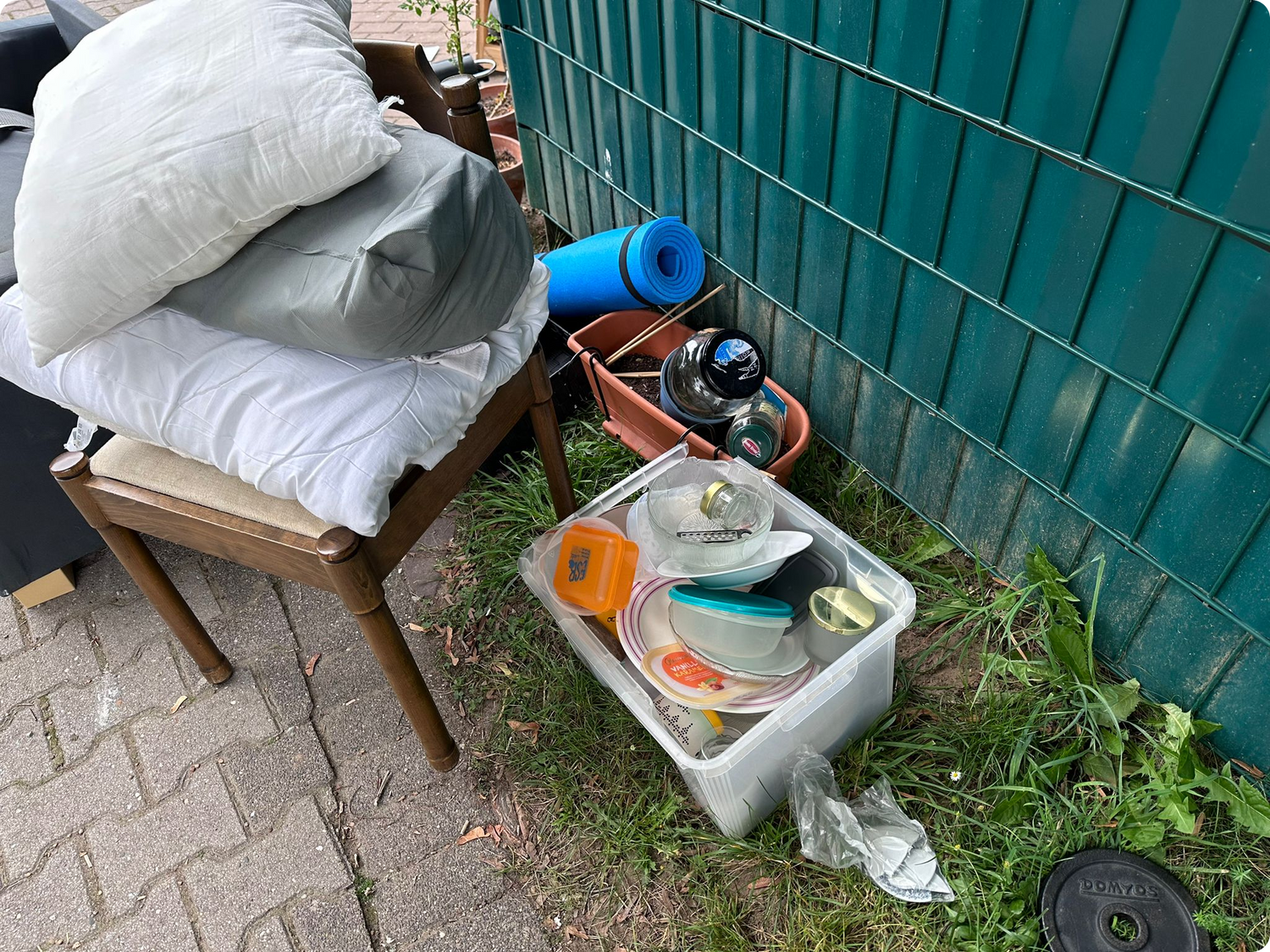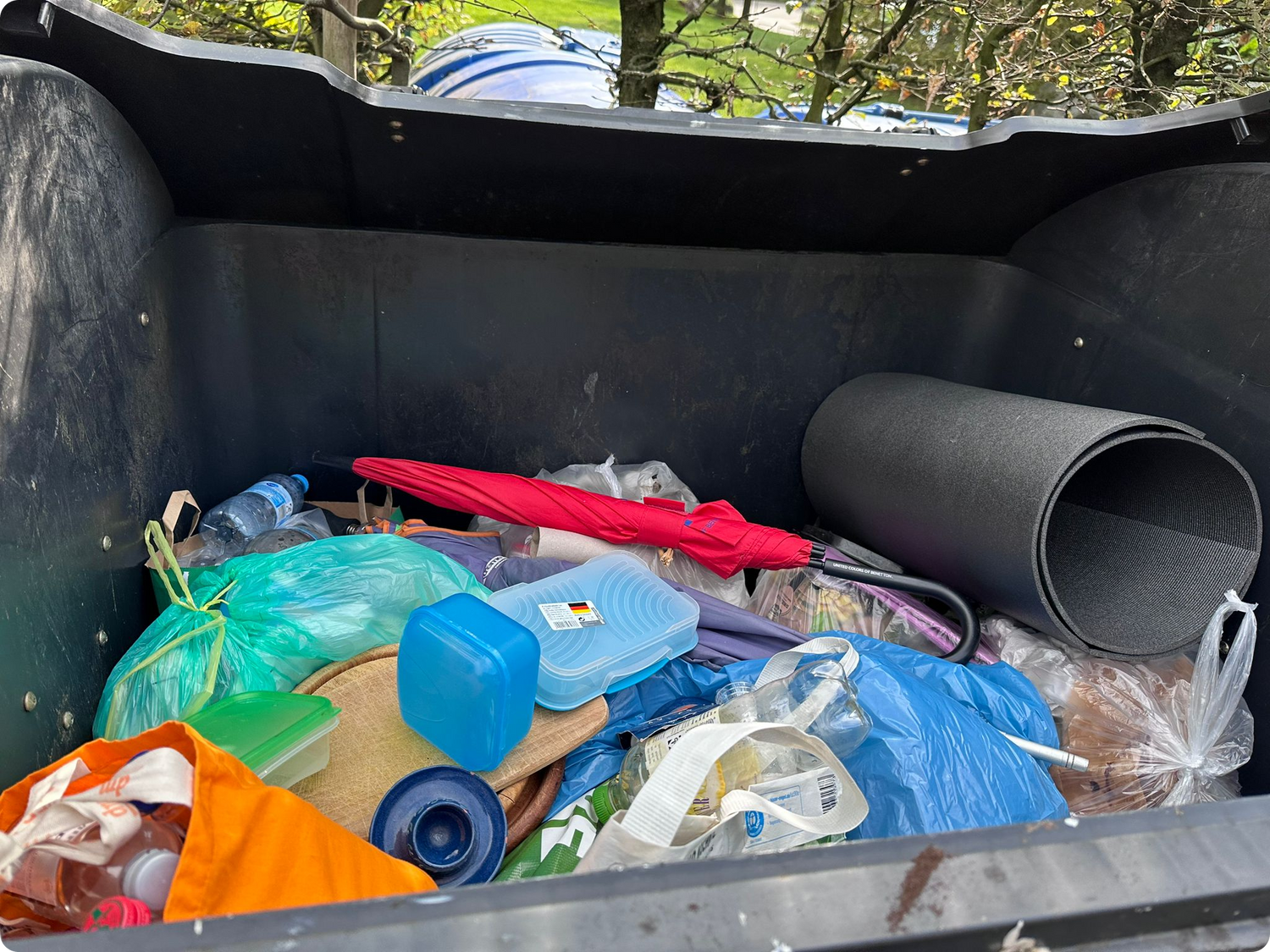THE PROBLEM WE FOCUS
THE HOUSING DILEMMA

The Issue at Hand: Disposable Living
Housing companies, including student hostels and shared living spaces, often opt for convenience and short-term savings. When it's time for a former tenant to move out, the standard practice is to place the used kitchen and bedroom articles outside home or in the common path. Sometimes these articles are picked up, but in most cases the unattended articles land in the garbage. This cycle repeats with each change in occupancy. The pictures you see shows the actual situation taken from the garbage station of a student hostel after semester end.

The Environmental Toll: A Shocking Reality
This disposable approach to living has alarming environmental consequences:
- Waste Generation: Each year, tons of used but perfectly functional home articles end up in landfills. This practice contributes directly to the ever-increasing waste problem in our communities.
- Resource Exhaustion: The production of new articles consumes valuable resources, including energy, water, and raw materials. This not only exhaust our planet's resources but also contributes to pollution and habitat destruction.
- Carbon Footprint: The transportation of new articles to housing spaces generates a significant carbon footprint. This includes manufacturing, shipping, and disposal-related emissions.
- Financial Burden: Housing companies spend substantial amounts of money on purchasing new articles repeatedly. These expenses eventually translate to higher rent and fees for tenants.
OUR SOLUTION: SUSTAINABILITY THROUGH CIRCULAR ECONOMY
What happens to the donated articles?
-

Donation Bundle
Donated items are quality-checked and, if approved, passed on in a Donation Bundle at no cost to the next person. This effectively reduces waste, supports a circular economy, and fights the throwaway culture.
-

Donation to Charities (In Progress)
We look forward to partner with NGOs to donate items for disaster relief and those in need, extending the impact of our Donation Bundles to environment and vulnerable communities in times of crisis.
-

Upcycling
Some articles may be creatively upcycled into new, unique products, giving them a fresh lease of life while reducing the need for new raw materials. For example a pan can be turned into a clock by an artist.
-

Sustainable Disposal
When an article cannot be refurbished, donated, or recycled, we ensure it is properly sorted and sent to disposal companies, thereby reducing the effort involved in waste management.



